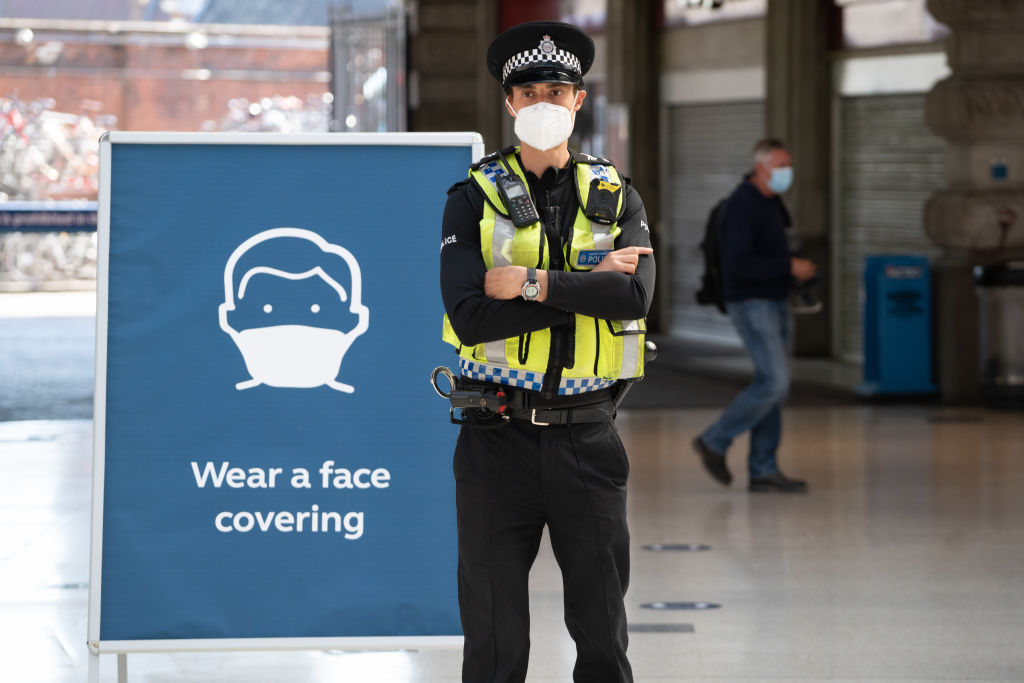Boris’s Latest Rules are More Baffling Than Ever
Sun 11:50 am +01:00, 10 Jan 2021
Charles Holland, a lawyer who writes regularly for the Spectator, has examined the rules of the new Lockdown and he is not impressed:
When Boris Johnson rolled back the legal restrictions over summer as Britain emerged from the first lockdown, he was clear that enough was enough:
“Neither the police themselves, nor the public that they serve, want virtually every aspect of our behaviour to be the subject of the criminal law… After a long period of asking… the British public to follow very strict and complex rules to bring coronavirus under control… we will be asking [people] to follow guidance on limiting their social contact, rather than forcing them to do so through legislation.”
There has obviously been a sharp U-turn in this approach and though previous rule changes have been justified on the basis of making them easier for the public to understand and for the police to enforce it would be hard to mount such a defence now, says Charles Holland.
The law is very complex, the mere 12 pages of regulations for the English Lockdown 1 have been superseded by 120 pages of the (thrice amended) Health Protection (Coronavirus, Restrictions) (All Tiers) (England) Regulations 2020. Intricacy more appropriate to the Dungeons and Dragons’ rulebook has not stopped an accompanying barrage of guidance, ministerial statements, spokespersons’ clarifications, police pronouncements, public information posters and pop-ups…
The circumstances in which a person may leave their Tier 4 home to access childcare services, for example, has been subject to wholesale amendment three times in less than three weeks. Sparing readers the tedious technical ebbs and flows, the current position reserves the use of a particular species of childcare to parents who are “critical workers”, but only where “reasonably necessary” to enable them “to work or search for work, undertake training or education, or to attend a medical appointment or address a medical need’”.
Parking the checklist-style complexity, it is difficult understand the rhyme or reason for this sort of cheese-paring. Why is it reasonable for a critical worker to put their child in childcare in order to attend a job interview, but not to attend a funeral?
Matters are made worse by guidance which overstates the law. The latest lockdown guidance resurrects previously challenged advice that exercise “should be limited to once per day”. The word ‘should’ (not ‘must’) indicates to lawyers that this is non-legally binding advice. Non-lawyers, such as the ambulant constable or PCSO in your local park, may not draw such nice distinctions. The Met’s ominous suggestion that Londoners can “expect officers to be more inquisitive as to why they see them out and about” raises the spectre of al fresco debates on restrictions and exceptions. There is plenty to debate: the regulations now set out 16 non-exhaustive categories of circumstances deemed to be a reasonable excuse to leave the home, with an overlay of non-enforceable guidance to further confuse what is already unclear. Derbyshire Constabulary, in particular, have once more come under the spotlight for what appears to be enforcement of guidance (exercise locally) rather than the law.
The gilding of the law with guidance remains a continuing mystery. If you want exercise to be limited to once per day or to be taken locally, why not legislate for that? Why devalue the legislative currency, already under pressure because of the sheer volume of regulatory output? Press reports suggested that the Government did consider travel restrictions, and even a night-time curfew, but was not prepared to go that far.
Further confusion arises from post-legislative departmental ‘clarification’. Lockdown 3 saw the removal of the express ‘recreation’ exemption from the stay-at-home rule: within two days, representations from angling and shooting organisations had caused Government officials to ‘acknowledge’ that fishing and shooting constitute ‘exercise’, and thus within a permitted exception…
Why does this matter? Because the cost of lockdown will be squandered unless it works. The great unanswered question is this: is the current combination of laws, guidance and enforcement policies the best mechanism to achieve the minimum in social mixing and concomitant reduction in transmission of the virus? I’m not convinced.
No-one would envy Government the task of coming up with the right mixture of rules and imploring people to use their common sense. But constant tweaking of the criminal law to micromanage ways in which people might need to venture out of the front door and interact has produced a mush of overwhelming complexity. This is a gift to both the loophole spotter and the overzealous enforcer. It undermines enforcement against the irresponsible, who can – and do – use complexity of the law as justification for not understanding it. The resurgence of arbitrary lines of fine-tuning also undermines a message that would be more effective if put simply.
So while Boris’s broadcast message to “stay at home” was straightforward, the rules are anything but. There are too many regulations. They are too complicated. And Government advice only adds to this confusion.
Worth reading in full.
Stop Press: The Telegraph is reporting that police will issue fines to rule breakers after one warning.
Stop Press 2: The police do themselves get caught out occasionally. A number of officers were spotted tucking into breakfast inside a café. A clear breach of the rules and and the matter is being investigated according to MailOnline.
https://lockdownsceptics.org/










